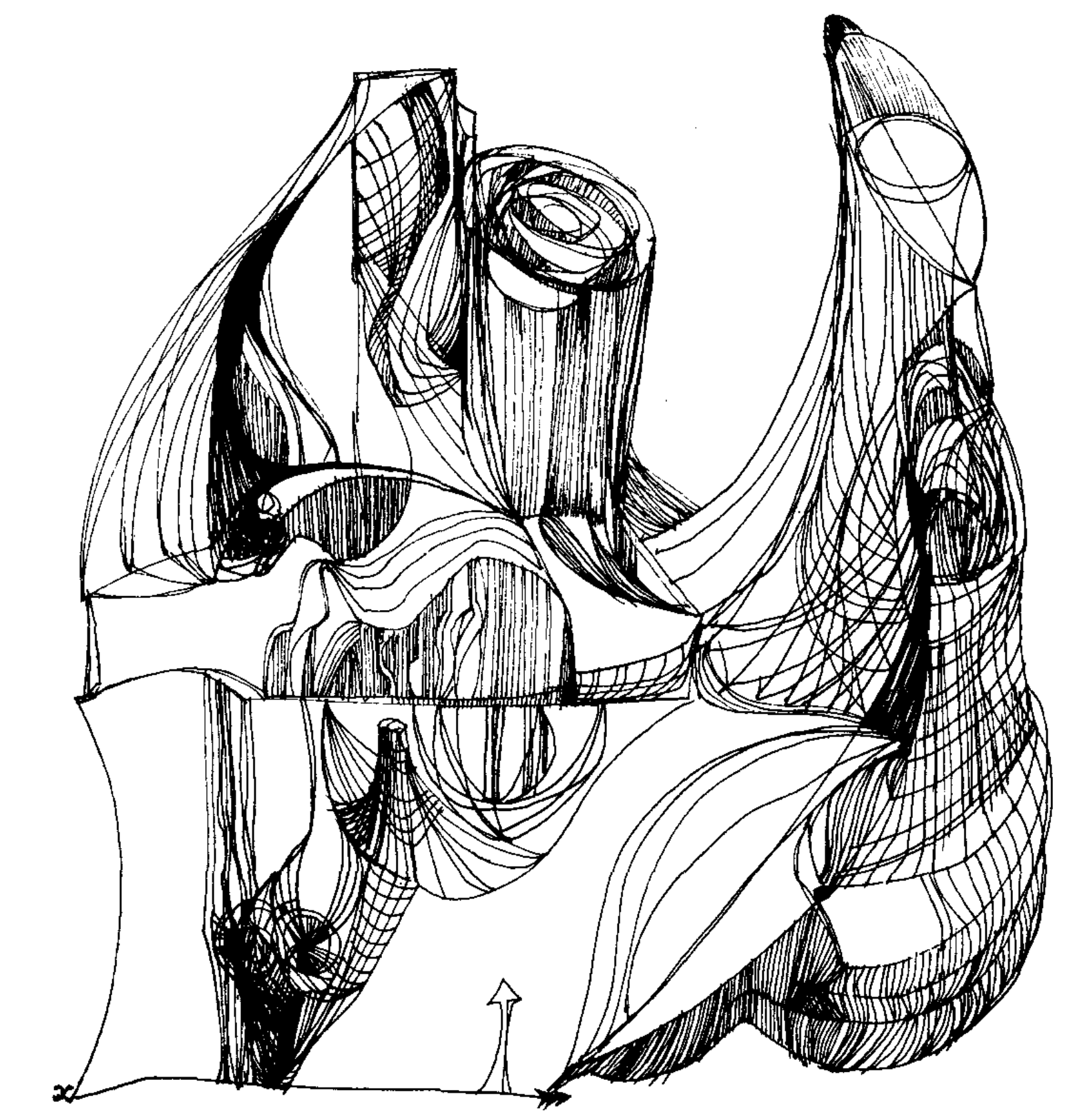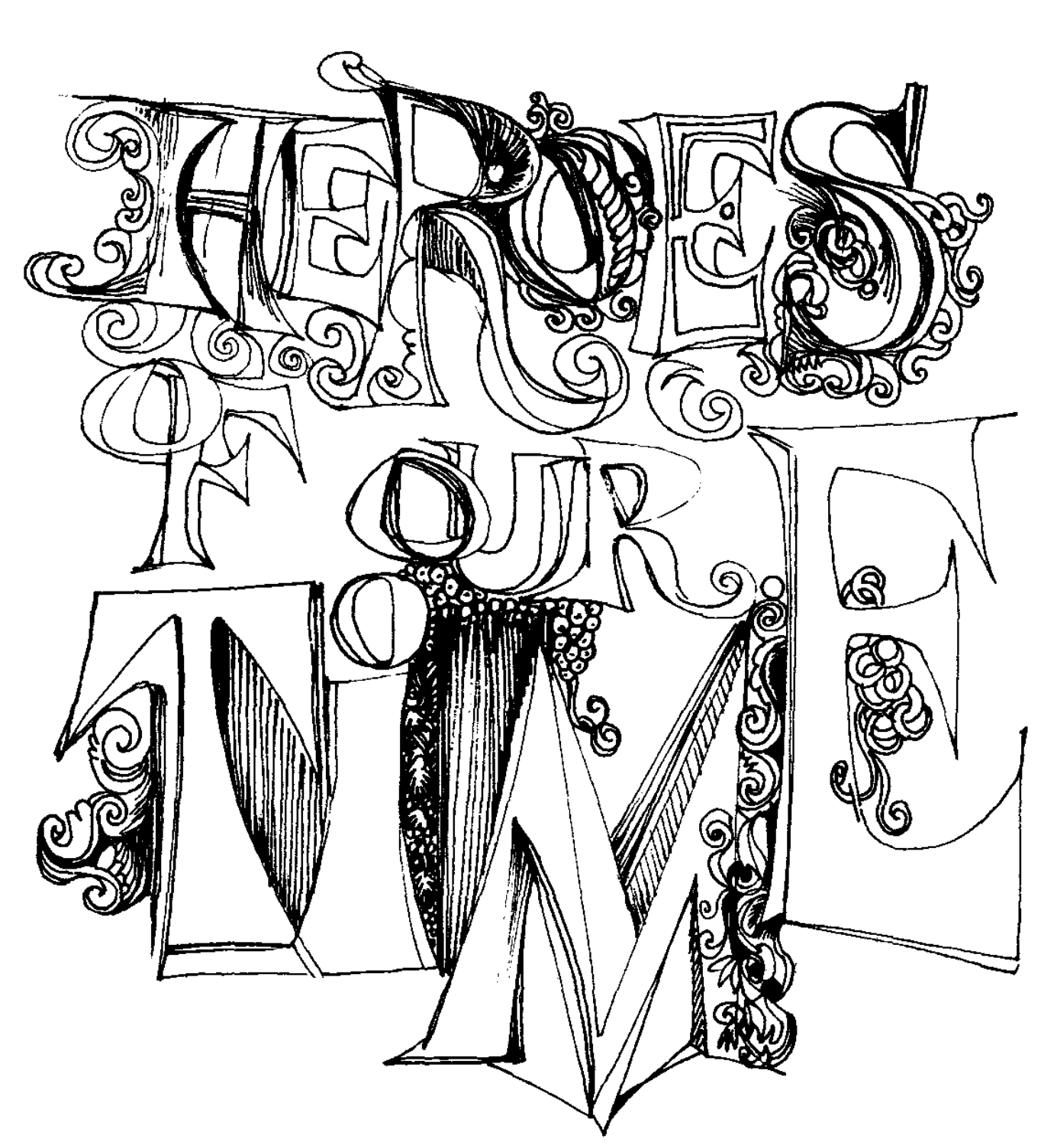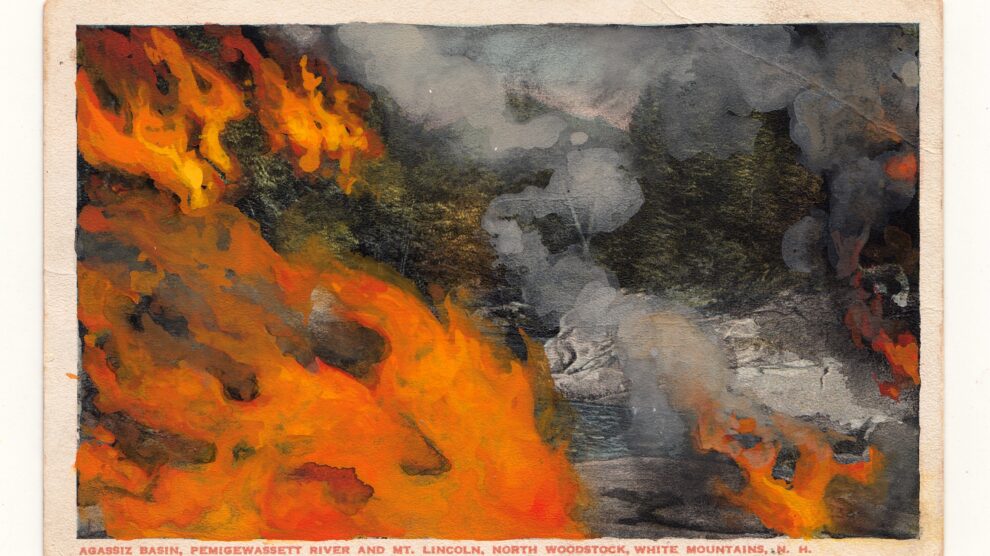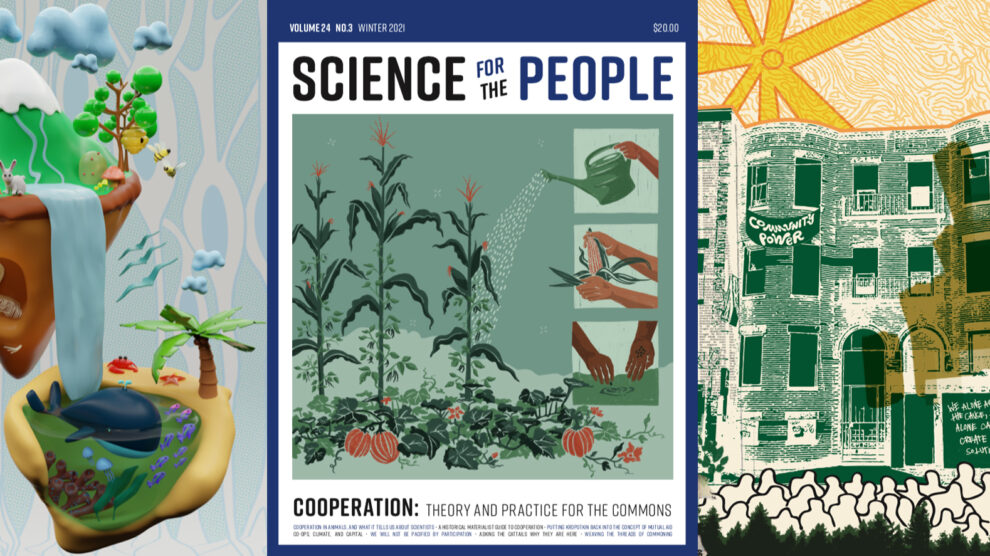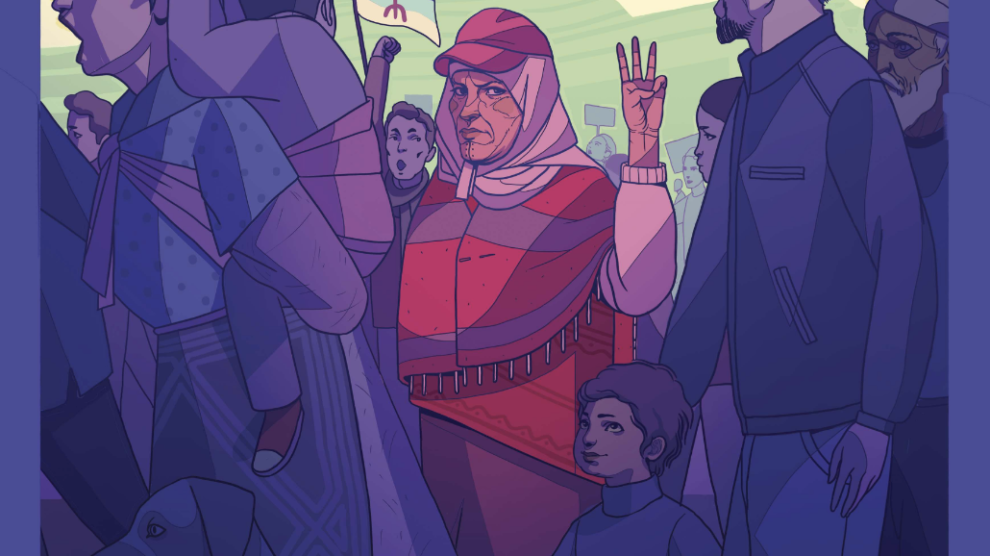Visualizing Radical Science:
A Tribute to Elizabeth Fox-Wolfe, 1926-2019
by herb fox
Volume 22, number 1, The Return of Radical Science
My sister, the artist Elizabeth Fox-Wolfe, died at 92 on January 19, 2019, from a massive brain hemorrhage. She had been active until the end: painting, sketching, taking four-mile walks, and enjoying life and the extended family. Elizabeth created the iconic Fist and Flask that identifies the organization Science for the People to this day; and using the nom de plume Alphabet, she contributed the artwork in the early editions of the epiphenomenal magazine.
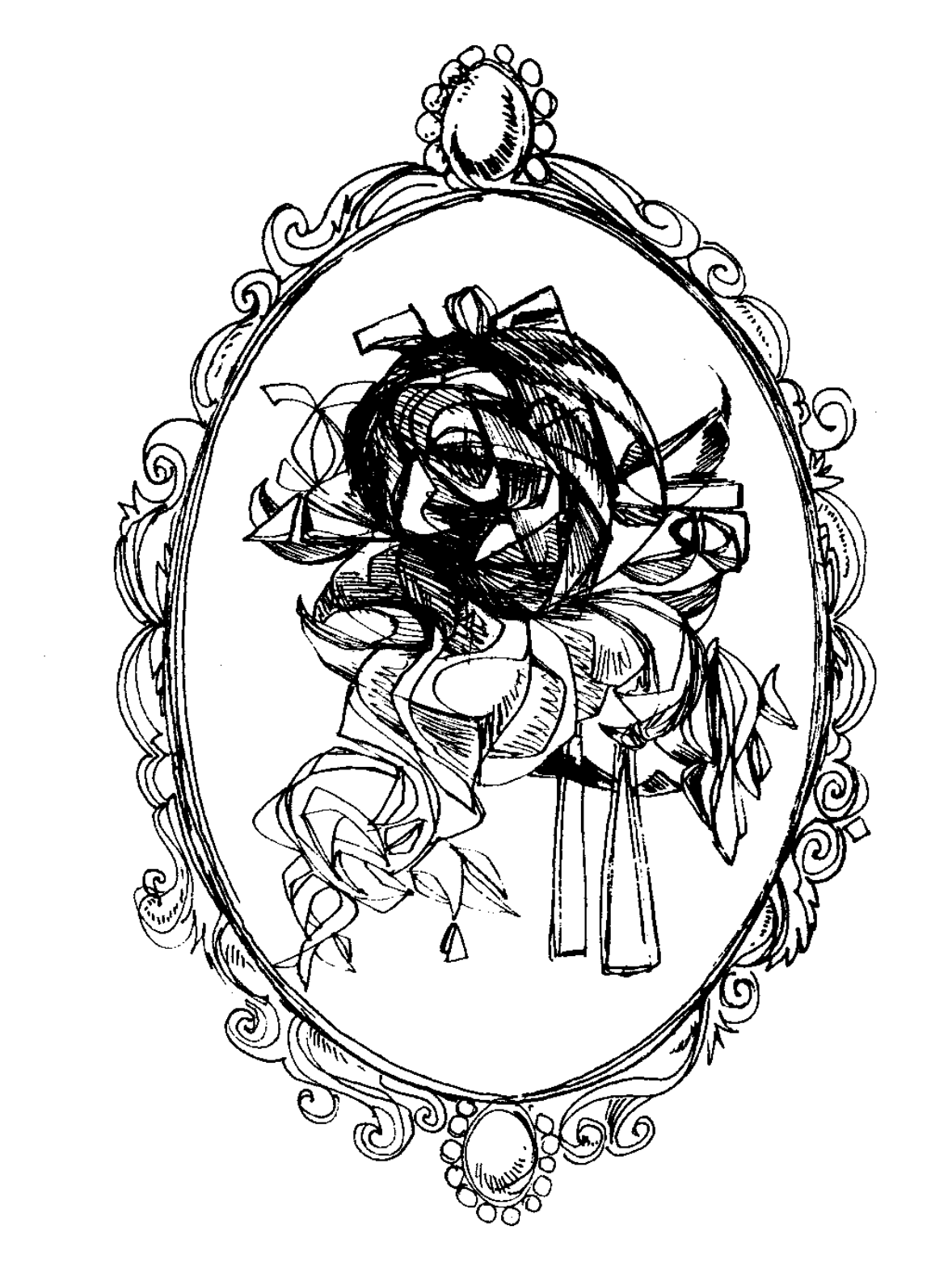
Elizabeth was always an artist. Our father, who was brought to the United States in 1898 at age five, was also an artist. Unfortunately, financial necessity compelled him to work in the commercial world — his legacy includes the iconic Rich Uncle Pennybags from the board game Monopoly. The Depression rendered us economically poor, but we were culturally rich. Elizabeth was fascinated by the art books around the house and the paintings on the walls — forever looking at them and sketching.
Elizabeth was an integral part of the group that produced the first issues of Science for the People. She not only contributed artwork but also participated in layout, paste-up, and the numerous other tasks necessary in those pre-computer days to make a magazine. She was also a strong contributor to the esprit de corps that characterized the early group of scientists and others who soon achieved national status for our disruptive activities at scientific meetings.
While Elizabeth worked a wide variety of jobs (including as a fisherwoman and a sheetrock installer) to make a living, the artist in her was always observing. For example, when I greeted her a few weeks before she died, she immediately noticed my multi-colored wool cap, exclaiming, “What colors!” She had the artist’s eye for people, plant life, animals, color — everything. In that sense, she lived in a different world. We see this in the illustrations she produced for the magazine. 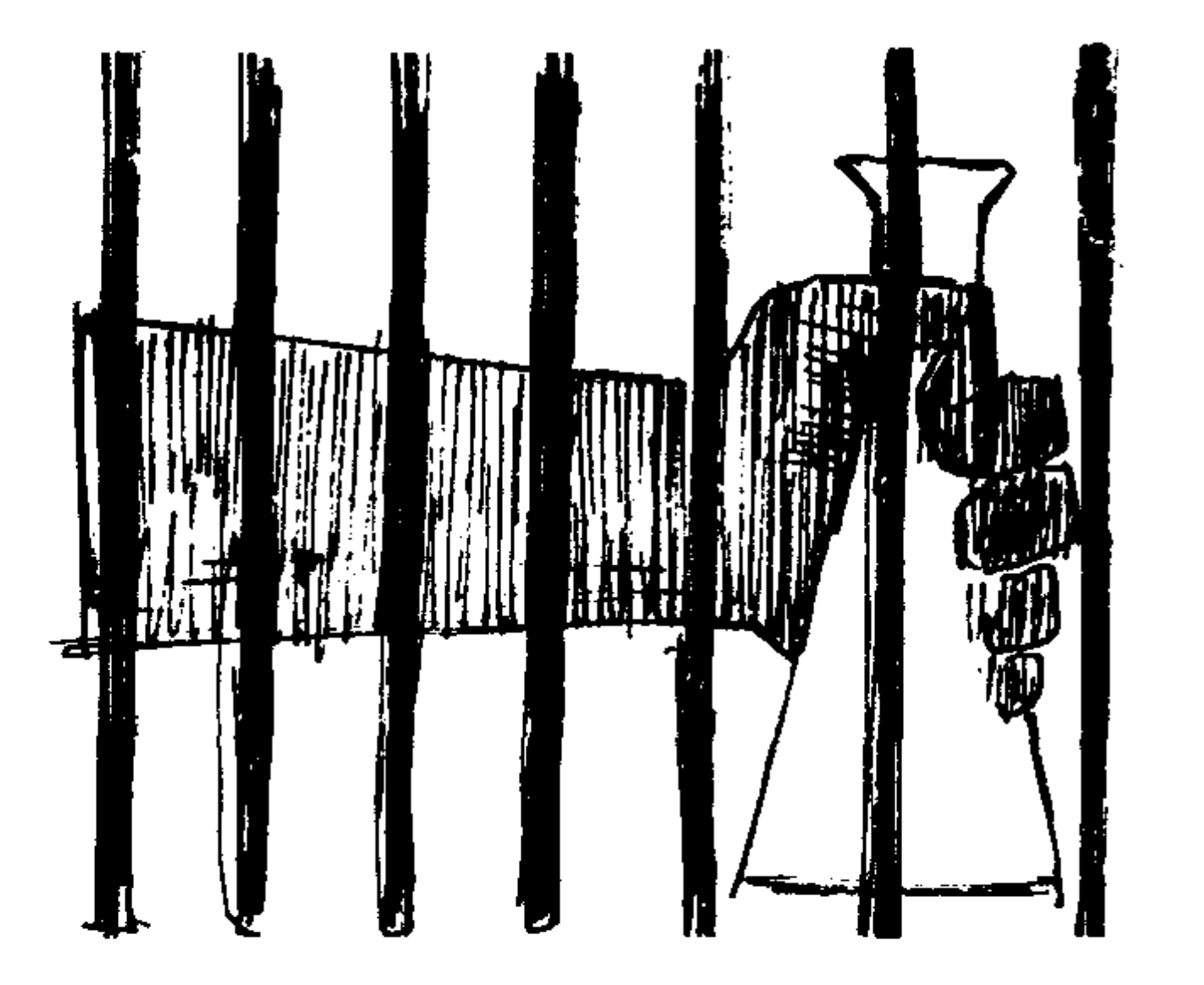 A few are literal, such as the illustration accompanying the exchange of letters between the jailed Black Panther, biochemist Curtis Powell, and Jon Beckwith on page four of Vol 2, no. 2 in which the fist and flask are behind vertical jail bars and the arm is black. Then there are the less literal but suggestive sketches that appear on pages fourteen and fifteen of the same issue. The ornately decorated title, “Heroes of Our Time,” suggests the satirical perspective with which early SftP viewed existing power structures, while the illustration could very well be a framed hero, with an abstracted suggestion of facial features. Finally, there are sketches like that on page ten of Vol. 3, no. 2 that appear to be totally abstract and difficult to relate to the article to which it is attached. But in fact, every sketch represents Elizabeth’s response after reading the article that it accompanies.
A few are literal, such as the illustration accompanying the exchange of letters between the jailed Black Panther, biochemist Curtis Powell, and Jon Beckwith on page four of Vol 2, no. 2 in which the fist and flask are behind vertical jail bars and the arm is black. Then there are the less literal but suggestive sketches that appear on pages fourteen and fifteen of the same issue. The ornately decorated title, “Heroes of Our Time,” suggests the satirical perspective with which early SftP viewed existing power structures, while the illustration could very well be a framed hero, with an abstracted suggestion of facial features. Finally, there are sketches like that on page ten of Vol. 3, no. 2 that appear to be totally abstract and difficult to relate to the article to which it is attached. But in fact, every sketch represents Elizabeth’s response after reading the article that it accompanies.
The illustrations in Science for the People are just a small fraction of my sister’s work, but they are representative of her pen and ink line drawings. In her many travels, she always kept journals, which are full of such sketches. We discussed the creative process a lot in the last four years after I left physics to return to music composition. We discovered that when she painted she almost always produced abstract paintings, but when she did the line sketches she could always find a creature lurking there somewhere. So I encourage those so motivated to find the creatures in Elizabeth’s SftP sketches.
Elizabeth Fox-Wolfe died a Buddhist. I am confident that through her artful products and in the memories of all who knew her, she lives on.
About the Author
herb fox was a founder of SftP, or more precisely initiated the transformation of SESPA (Science and Engineers for Social and Political Action) into Science for the People. Using organizing skills developed in political and trade union activism that began in 1944 at age fourteen when he circulated petitions against atomic bomb tests, he brought together the forces that created the first interventions at the AAAS and the eponymous magazine. After leaving SftP, herb continued his activism by forming study groups, organizing strikes, and struggling within the trade union movement. In the mid 1990s he co-founded Agitarte, a radical street theater, puppet, and hip hop group, and the adjunct union at UMass Lowell in 2010. In 2014 herb retired to resume writing music, his first occupation.


